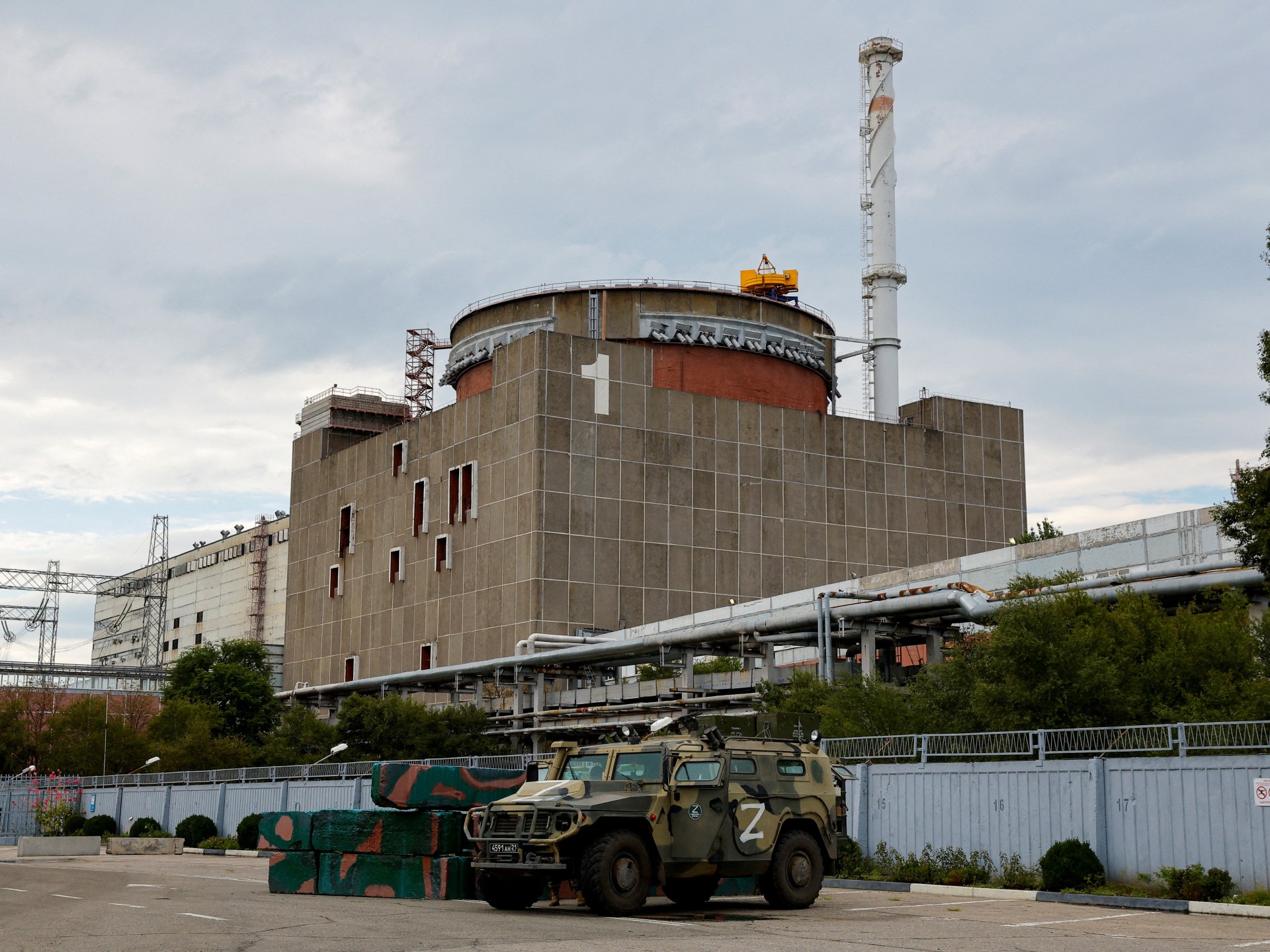Russian Deputy Foreign Minister Sergey Ryabkov said that Moscow considers the formation of a protection zone around the Zaporozhye nuclear power plant a necessary step, stressing his country's readiness to cooperate with the International Atomic Energy Agency on this issue.
In her report published by the Russian newspaper "Izvestia", journalist Ekaterina Postnikova said that the Director-General of the International Atomic Energy Agency, Rafael Grossi, had earlier confirmed the possibility of reaching an agreement on the Zaporozhye nuclear power plant before the end of this year.
protection area
Postnikova said that Grossi, during his visit to Argentina, referred to the talks he held with Russian President Vladimir Putin and Ukrainian President Volodymyr Zelensky, to the need to agree on the basic principles of protecting nuclear power plants.
According to the Russian newspaper, during the talks on the status of the nuclear power plant in Zaporozhye outside the boundaries of military clashes, the wording plays a key role;
Russia categorically rejects the idea of establishing a demilitarized zone proposed by the Ukrainian side and Western countries, which stipulates the withdrawal of the Russian army from the station, but has declared its readiness to discuss a protection zone or a security zone.
The writer quoted Ryabkov as saying that "reaching an agreement on disarmament is impossible in principle, because this does not guarantee the protection of the station and ensure its safety. Knowing that the establishment of a protection zone is a different matter and its parameters are under discussion."
According to Ryabkov, Moscow is ready for such an agreement, but it is too early to talk about how it will be issued.
Russian control
Russia has extended its control over the Zaporozhye nuclear power plant since last March.
For his part, on the fifth of this month, Putin instructed the government to annex the facilities of the Zaporozhye nuclear power plant to Russian ownership.
Izvestia notes that the question of who owns the plant may complicate negotiations over its security, including how international experts will have access to the nuclear power plant.
The newspaper quoted a researcher at the Center for International Security of the Russian Academy of Sciences, Dmitry Stefanovich, as confirming that despite Russia's control of the station, the International Atomic Energy Agency did not adopt these changes, while the media continued to adopt the formula that the Zaporozhye station belonged to Ukraine.
Stefanovich believes that the agreement to coordinate joint actions related to the military operation in the vicinity of the plant is one of the ways to secure the nuclear power plant in Zaporozhye.

